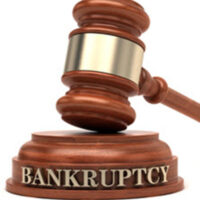Should I Consider Chapter 13 Bankruptcy If I Am Eligible for Chapter 7?

Many debtors who are considering a bankruptcy filing in St. Petersburg or elsewhere in Florida often wonder which type of bankruptcy they should “choose” to file, but there is not usually a choice for most debtors. Generally speaking, under the US Bankruptcy Code, a debtor can only be eligible for Chapter 7 bankruptcy if the debtor’s assets and income are low enough that a liquidation bankruptcy would not be considered abuse, whereas a debtor is usually only able to file for Chapter 13 bankruptcy if they earn a regular wage and can show that they will have the ongoing resources to make regular payments as part of the repayment plan in this type of reorganization bankruptcy. However, in some circumstances, a debtor may be able to pass the “means test” to prove eligibility for Chapter 7 bankruptcy while still being a wage earner.
If you are eligible for Chapter 7 bankruptcy, should you even consider Chapter 13 bankruptcy? Our St. Petersburg bankruptcy lawyers can provide you with information to consider.
Benefits of Chapter 13 Bankruptcy (Not Available in a Chapter 7 Case)
There are some reasons to consider Chapter 13 bankruptcy over Chapter 7 bankruptcy, depending on the debtor’s circumstances. As a liquidation bankruptcy, Chapter 7 allows a debtor to get a fresh financial start within months after filing a bankruptcy case, allowing for debts to be discharged. Although a Chapter 13 case takes significantly longer (three to five years), and debtors repay a significant portion of what they owe over time, there are key benefits to a Chapter 13 bankruptcy. In a Chapter 13 bankruptcy — but not in a Chapter 7 bankruptcy — you may be able to:
- Stop a foreclosure on your home, catch up on mortgage payments with your servicer, and keep your house;
- Retain secured property, such as a motor vehicle; and
- Avoid having any of your assets liquidated or sold (Chapter 13 cases do not involve the liquidation of assets).
Goals of the Bankruptcy Filing
In aiming for a Chapter 7 or Chapter 13 filing, you will want to focus on your goal or goals in filing for bankruptcy: is your aim primarily to get a fresh start and relatively quickly, or to stop a foreclosure and catch up on debt with your creditors?
Converting a Bankruptcy Case
If you do file for either Chapter 7 or Chapter 13 bankruptcy, and then you become eligible for the other type of bankruptcy or your circumstances change, US bankruptcy law allows bankruptcy cases to be converted. Depending on your circumstances, you may be able to convert a Chapter 13 bankruptcy case to a Chapter 7 bankruptcy case, or vice versa. If you have questions about how this works, or if you have already filed for bankruptcy and want to learn more about converting your bankruptcy case, you should discuss the details with a bankruptcy lawyer in Florida.
Contact Our St. Petersburg Bankruptcy Attorneys Today
The two most common types of consumer bankruptcy are very different from one another, although both provide forms of debt relief for the filers. In order to determine your eligibility for common types of consumer bankruptcy, or to determine whether you should file for Chapter 13 or Chapter 7 bankruptcy if that option is available to you, you should discuss your circumstances with a lawyer who can help. An experienced St. Petersburg bankruptcy attorney at the Law Offices of Stephen Barszcz can talk with you today about your current financial circumstances and your goals for the future, and we can assist you in filing and going through the type of bankruptcy case that is best suited to your situation and your needs. Contact us today for more information.
Source:
law.cornell.edu/uscode/text/11
